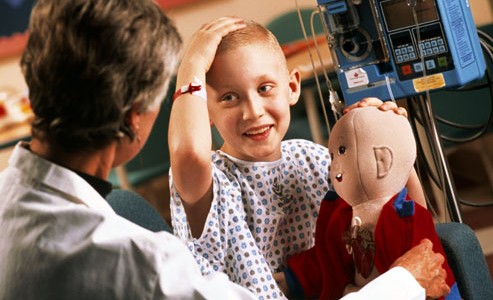As a parent, you probably take plenty of steps to protect your children from the plethora of nasty germs that can be found in various classroom environments around the country at this time of year. However, you might be surprised to find that doctors are working out new methods of using these exact same viruses to help treat children who have been diagnosed with certain forms of cancer.
This groundbreaking approach is known as viral therapy, and it could help save many lives. In order for it to work, scientists must alter the virus ever so slightly in the lab, then they inject the virus directly into a solid cancer tumor. This causes the cancer tumor to shrink and then disappear entirely!
Viruses Show Promise as Anticancer Agents
After years of intensive research, scientists have uncovered a growing pile of evidence suggesting that oncolytic viruses show a lot of potential as anticancer agents, with variations of the herpes simplex virus (HSV) as leading standouts in this area. So far, most institutions have studies viral therapy’s effectiveness in adults, but only a few have looked at it’s potential for pediatric cancers.
“Virus therapy is a very promising area of cancer treatment,” suggests Timothy Cripe, MD, PhD, division chief of Hematology/Oncology and Bone Marrow Transplantation at Nationwide Children’s. “By injecting the tumor directly with a virus, it will cause the body’s immune system to react and attack that tumor while preserving the body’s healthy cells.”
With the level of damage that the virus inflicts on the tumor, it astonishingly does not appear to damage any of the surrounding healthy tissues and cells. This means that there are little to no side effects from this form of therapy. Additionally, this treatment would be a godsend for pediatric cancer patients that would otherwise have to undergo chemotherapy. Patients treated with viral therapy would not have to endure any of the hair loss, chronic fatigue, nausea, or the other adverse effects of chemo.
Taking the Next Step in Developing this Viral Therapy
Dr. Cripe and his colleagues are planning on initiating a phase I clinical trial at Nationwide Children’s very soon, during which they will be able to study the therapy’s effects on solid cancer tumors in children. Initially, they’ll be looking to see how viral therapy works for cancers such as sarcoma and neuroblastoma.
Earlier this year, Dr. Cripe’s team published findings in Molecular Therapy which provided valuable insight into how how effective viral therapy could be when used in combination with drugs that simultaneously target blood vessels in tumors and suppress the immune response within the cancer.

